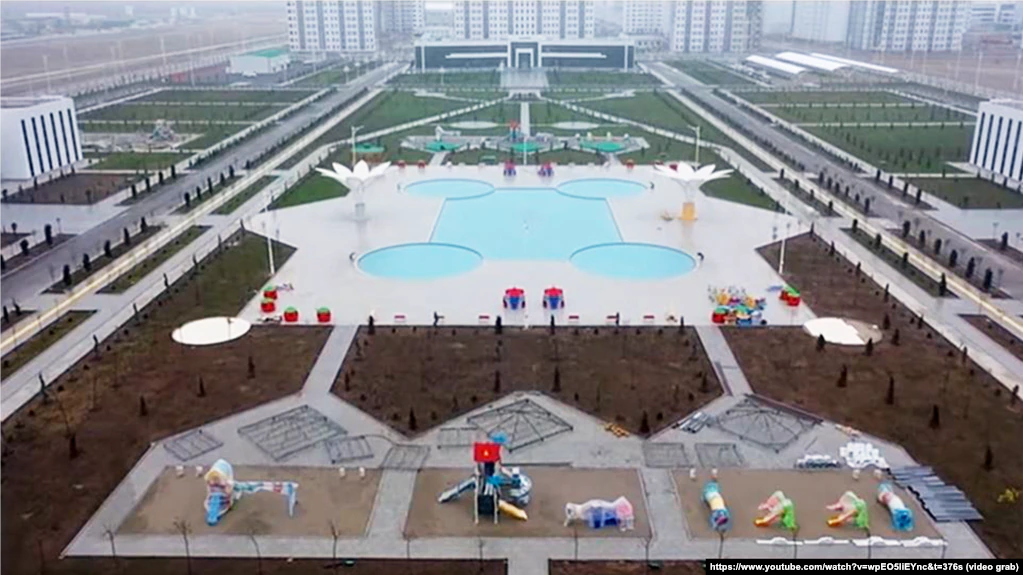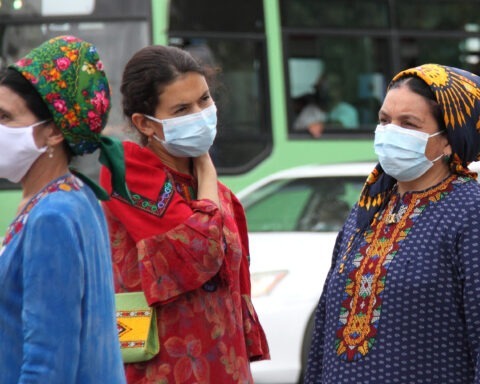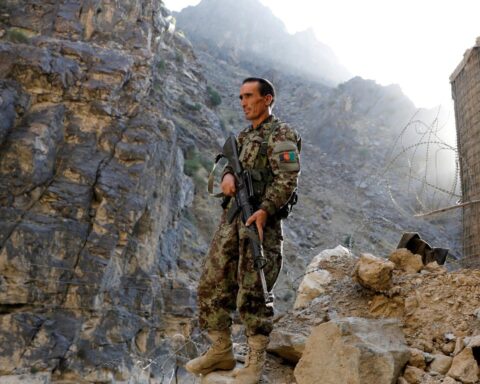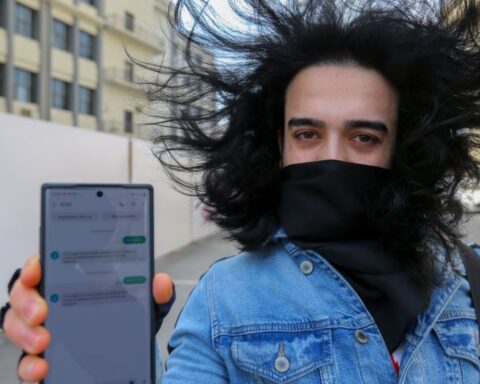ALMATY – Turkmenistan, one of the world’s most repressive and isolated countries, is stricken by widespread poverty.
But the authorities are set to unveil a newly built $1.5 billion city, a project that officials claim “reflects the rapid socioeconomic development” in the Central Asian nation.
The new city — Arkadag, or Protector — draws its name from the formal title of Gurbanguly Berdymukhammedov, the authoritarian leader who stepped down in March after ruling the country with an iron fist for over 15 years.
Berdymukhammedov handed power to his son, Serdar, in a managed election. But the 65-year-old remains a top official as the chairman of the upper house of parliament and continues to wield considerable influence.
Located around 30 kilometers southwest of the capital Ashgabat, Arkadag will serve as the capital of Akhal Province, which is situated along the border with Iran and Afghanistan.
Construction of the project began in 2019, the same year that Serdar Berdymukhammedov’s was appointed as governor of Akhal.
Over the course of the project, the younger Bedymukhammedov became the minister of industry and construction materials and deputy chairman of the cabinet before succeeding his father as president.
In April, Serdar Berdymukhammedov called for a “public discussion” to find a name for the new city.

Sure enough, the speaker of Turkmenistan’s lower house of parliament duly announced the city’s name on December 21, claiming that “the wishes of residents of all regions” and the “suggestions of public organizations” had been taken into account.
But sources told RFE/RL’s Turkmen Service in May that the name was already decided.
c watchers scoff at the notion that the city-naming was an exercise in democracy.
“There is no trace of a public campaign. How did they ask the opinion of people in these regions where there is no Internet, where even mobile penetration is low?” asked Luca Anceschi, professor of Eurasian Studies at the University of Glasgow. “The name of the city is an illusion. The city itself is an illusion.”
‘Far Away From Food Queues’
Arkadag does not resemble most cities, or even provincial capitals, in Turkmenistan.
Footage shown on state media suggests it will have more in common with central Ashgabat, where billions of dollars generated from gas exports have funded the construction of ostentatious buildings with white marble facades even as other parts of the country bear the brunt of a prolonged economic crisis.
Arkadag has been hailed by Turkmen authorities as a “smart city,” which will host a hippodrome, a children’s rehabilitation center named after the former president, and a statue of the ex-leader. One of the central streets in the city will be named after the patriarch’s favorite horse, Akhan.
The city is designed to house more than 12,000 families.
Ruslan Myatiev, the editor of the Europe-based, exile-run Turkmen.News website, says Arkadag will accommodate members of the elite and those with ties to the ruling Berdymukhammedov family.
Myatiev said this fits the general pattern of the Berdymukhammedovs keeping members of their extended clan separate from the general population and “far away from food queues” that have become common amid rising poverty and food shortages.

“At the moment, the relatives — a very broad term that includes even very distant relatives — have occupied a number of neighborhoods built with state money in and around Ashgabat,” said the journalist.
In contrast, “since about 2015 the general population of Turkmenistan has been living with no clear vision of tomorrow,” Myatiev added.
‘Instruments Of Corruption‘
Despite all evidence to the contrary, Turkmen state propaganda has claimed a never-ending procession of economic successes.
An exception came last year when the elder Berdymukhammedov, then president, acknowledged that the state was struggling to repay its foreign creditors on time.
Earlier this month, residents of some neighborhoods in Ashgabat told RFE/RL that they had been left without water and heating during a cold snap.
In November, RFE/RL’s Turkmen Service reported a sharp growth in the market for secondhand clothes and used household items in Turkmenabat, the capital of eastern Lebap Province.
“When you go around to people’s houses, you see that they have put up for sale half of their belongings just to survive, to buy bread,” one Turkmenabat resident told RFE/RL’s Turkmen Service.
Turkmenistan’s energy-dependent economy took a nosedive after global oil and gas prices plunged in 2014 and Russia ceased imports in 2016.






